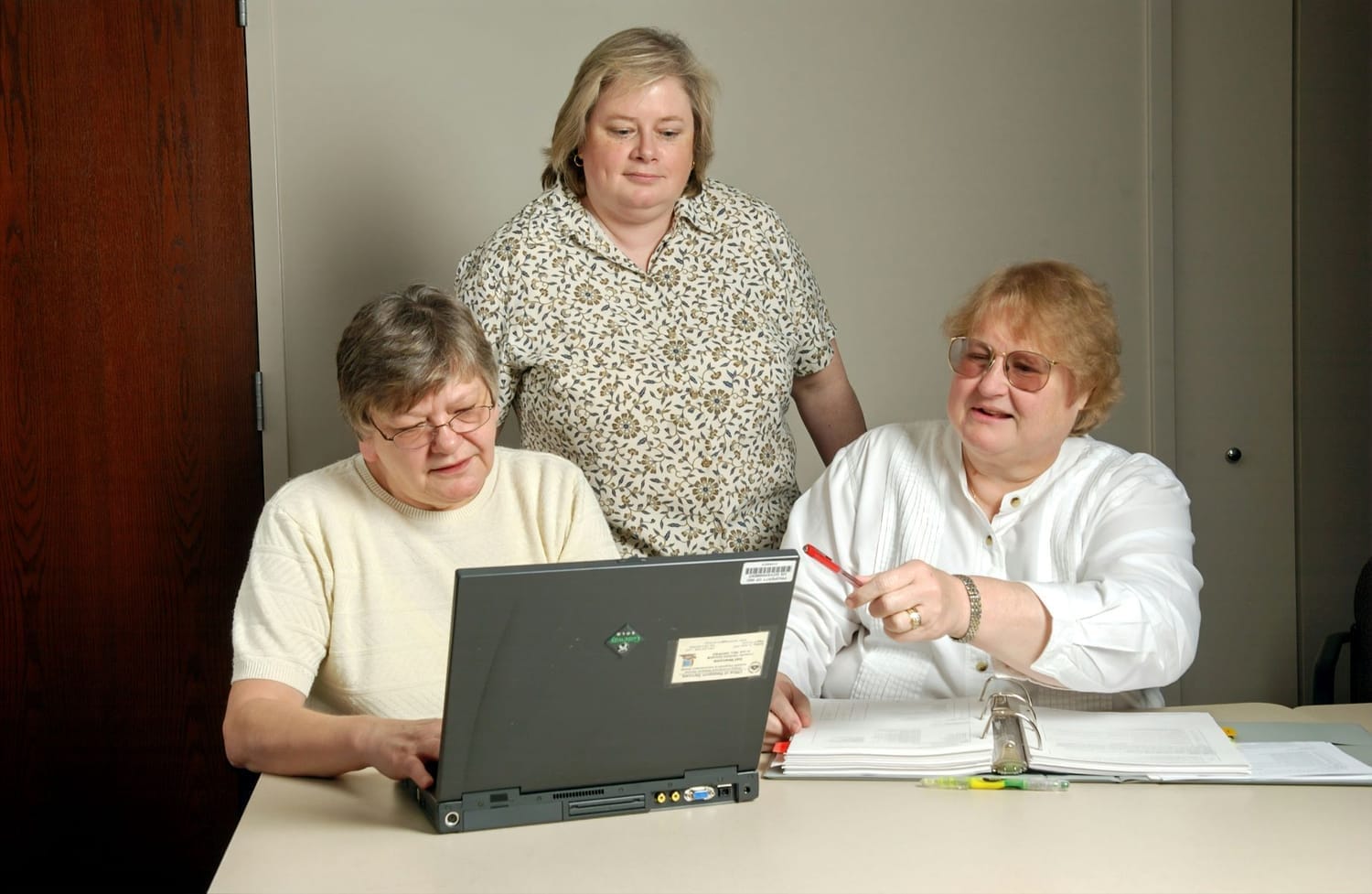Are you in North Carolina and looking for individual therapy or parent counseling?
Visit Flip Consulting and Counseling to schedule a free consultation
Written By Edla Prevette
Early Dementia Signs: How to Tell the Difference Between Normal Aging and Something More Serious
The phone rings at 2 AM. It's your 75-year-old mom calling to ask if you remember where she put her car keys – the same keys she called about yesterday. Your stomach drops as familiar worries creep in: Is this just normal aging, or could this be dementia?
If you're caring for both your children and aging parents, you're already stretched thin. The last thing you need is to lie awake at night wondering whether your parent's forgetfulness signals something more serious. As a member of the sandwich generation, you're juggling enough without the added stress of uncertainty about your parent's cognitive health.
But here's what dementia expert Carrie Aalberts (aka "Dementia Darling") wants you to know: understanding the difference between normal aging and early dementia signs can actually reduce your anxiety and help you take the right steps at the right time.
Know Your Parent's Baseline – This Changes Everything
The most important factor in recognizing early dementia signs isn't memorizing a checklist of symptoms. It's knowing who your parent truly is at their core.
"It's really important to take into account your person's baseline, like who they are," explains Aalberts, who holds a Master's degree in gerontology and has a decade of experience in dementia care. "Sometimes I can say, you know, because for some people, having personality changes, especially in younger people, that we see if we're dealing with maybe frontal temporal dementia, which we're seeing in younger people."
This means if your dad has always been impulsive, his continued impulsiveness isn't necessarily a red flag. But if your traditionally cautious mother suddenly becomes reckless with money or starts behaving inappropriately in social situations, that dramatic change from her baseline warrants attention.
Key takeaway: Document your parent's normal personality traits, habits, and abilities now. This baseline becomes your reference point for identifying meaningful changes later.
Normal Forgetfulness vs. Dementia-Related Memory Loss
We all forget things. You walk into a room and can't remember why you went there. You leave your keys in the front door occasionally. These moments of forgetfulness are completely normal – they're just part of being human.
But dementia-related memory changes look different:
Normal aging forgetfulness includes:
Occasionally forgetting where you put your keys
Walking through a doorway and forgetting what you came for (this is actually a documented phenomenon)
Forgetting you already fed the dog one night because you were distracted
Dementia-related memory changes include:
Forgetting how to drive to places you've been going for 20 years
Consistently forgetting to feed the dog every day of the week
Being unable to remember how to perform familiar tasks you've done your whole life
As Aalberts puts it: "When we're out and about, and we're driving to the [place we go] every week for 20 years, and we don't know how to get there and back, that is when we need to be like, 'Oh, that's not a normal aging forgetfulness.'"

Beyond Memory: Other Early Warning Signs
While most people think dementia always starts with memory problems, that's not always the case – especially in younger individuals developing dementia.
Personality and behavior changes can be the first sign, particularly with frontal temporal dementia (FTD), which is the most common cause of dementia in people under 60. These changes might include:
Sudden inappropriate social behavior
Uncharacteristic impulsiveness
Dramatic shifts in personality that are completely out of character
Language difficulties are another early sign to watch for:
Struggling to find common words
Getting stuck on certain words and having difficulty getting them out
Speech problems that interfere with daily communication
The Power of Keeping a Log
If you notice something that seems off, start writing it down. This isn't about becoming hypervigilant or documenting every small mistake. It's about creating a clear picture for healthcare providers.
"Having a log for your, the doctor is going to be huge," Aalberts emphasizes. "Even when you do see that first weird thing, and you don't know, start writing it down."
Your log should include:
Date and time of incidents
What specifically happened
How it differed from your parent's normal behavior
Any contributing factors (stress, illness, medication changes)
This information becomes invaluable when discussing concerns with doctors, helping them distinguish between isolated incidents and concerning patterns.
When It's Time to See a Doctor
The key question is whether the changes are interfering with daily life. Dementia is defined as "a collection of symptoms severe enough to impede daily life," explains Aalberts.
Signs that it's time to consult a healthcare provider:
Changes that happen multiple times rather than just once
Behaviors that interfere with work, social activities, or daily tasks
Personality changes that represent a significant departure from baseline
Multiple concerning incidents over time
Remember: "You're never going to regret going too early, let's say, or going, you know, or being hasty with wanting to get help. You're never going to regret that, so just go for it."

Having the Difficult Conversation
When you do need to address your concerns with your parent, approach the conversation with empathy and understanding. Remember, if they're experiencing cognitive changes, they may be just as scared as you are.
Do:
Use "I" statements: "I've noticed some things, and I'm worried"
Express your desire to support them
Choose the right timing when your parent isn't tired or stressed
Come from a place of love and concern
Don't:
Ask "Don't you remember?" repeatedly
Accuse them of forgetting everything
Use the word "why" (it can sound combative)
Bring it up during already stressful moments
As Aalberts notes: "Please give yourself grace. You're human again, you're human. You're allowed to be frustrated. This is scary. Watching your loved one, watching your parent, watching your spouse, watching anyone change is heartbreaking."
The Importance of Early Intervention
Getting help early – even if it turns out to be nothing serious – offers significant benefits:
Medical Benefits:
Some cognitive changes can be reversed if they're caused by depression, medication interactions, or other treatable conditions
Early diagnosis allows for better treatment planning
More time to make legal and financial arrangements while your parent can still participate in decisions
Family Benefits:
Reduces anxiety and uncertainty for everyone
Allows time to build a support network
Provides opportunity to create meaningful memories together
Helps siblings and other family members prepare and get involved
Technology and Support Resources
The good news is that you don't have to navigate this alone. New technology and support systems are emerging specifically for sandwich generation caregivers.
Age-tech companies are developing apps that can help you:
Track multiple family members' medical information in one place
Log incidents and symptoms for doctor visits
Coordinate care among multiple healthcare providers
Connect with other caregivers in similar situations

Challenging the Tragedy Narrative
One of the most important messages Aalberts shares is about changing how we think about dementia: "It makes me so angry. Like you said, it's this death sentence. It's often here. You know, we see dementia, get your affairs in order, and we have such a long way to go with education."
A dementia diagnosis, especially in early stages, doesn't mean life stops. People can continue to:
Maintain relationships and create new memories
Enjoy activities and hobbies (with modifications)
Make decisions about their care and future
Experience joy, love, and connection with family
You're Not Alone in This
If you're part of the sandwich generation wondering about early dementia signs, you're joining millions of others facing the same concerns. Research shows that about 2.5 million Americans are sandwich generation caregivers, and 24% of all adult child caregivers also care for a minor child.
The stress is real, but so is the support available. As Aalberts reminds caregivers: "You are truly not alone and I get it because people say back, we are alone though, but we're together like in a sense because we are so siloed in our homes doing these things. But I want to remind you, you're not the only one at the end of the day that's dealing with this."
Taking Action Without Panic
If you recognize any of these signs in your parent, take a deep breath. Early detection and intervention are your allies, not your enemies. Start with these steps:
Document what you're observing – Keep a simple log of concerning behaviors
Talk with your parent – Use empathy and I-statements to express your concerns
Schedule a baseline assessment – Even if everything turns out fine, you'll have a starting point for future comparisons
Connect with support – You don't have to figure this out alone
Remember, you're already doing an incredible job managing multiple generations of care. Trust your instincts, seek support when you need it, and know that whatever comes next, there are people and resources ready to help you through it.
Learn More About Today's Guest Expert
Carrie Aalberts, known as "Dementia Darling," holds a Master's of Science degree focused in gerontology and has a decade of experience in dementia care. Her goal is to enhance quality of life, encourage joy, and challenge the tragedy narrative around dementia and aging. You can find her valuable insights and supportive community at: https://dementiadarling.com
Edla Prevette specializes in helping sandwich generation caregivers develop effective communication strategies and reduce stress while caring for aging parents. With thirty years of experience as an educator and therapist, she provides research-based approaches that make caregiving feel more manageable. Learn more at edlaprevette.com.

2024 Edla Prevette | www.edlaprevette.com | Privacy Policy | Terms and Conditions | Affiliate Disclosure
